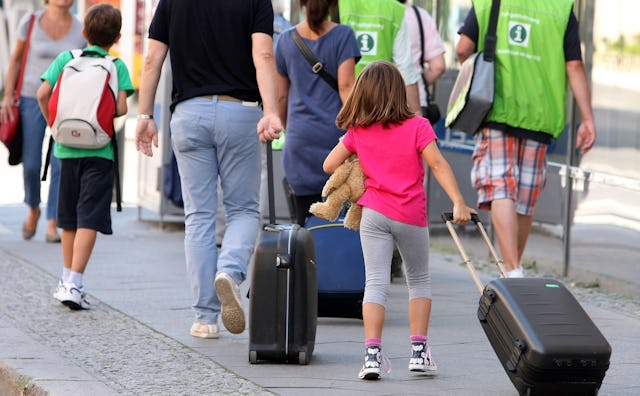The CDC's 4 Tips for a Measles-Free Spring Break

According to Darlene Foote, a public affairs specialist for the CDC, yes. She said in an email:
“Measles remains a common disease in many parts of the world, including areas in Europe, Asia, the Pacific, and Africa. In the United States, most of the measles cases result from international travel. The disease is brought into the United States by unvaccinated people who get infected in other countries. They spread measles to others, which can cause outbreaks.
“Anyone who is not protected against measles is at risk of getting infected when they travel internationally.”
So if you’re planning to take a trip abroad, make sure you have your bases covered at least a month in advance. Before any international travel, double check your health records, or with your pediatrician, to make sure your kids are up to date with their immunizations. The CDC recommends, before any international travel:
1. Infants 6 months through 11 months of age should receive one dose of MMR vaccine.
2. Children 12 months of age and older should receive two doses of MMR vaccine separated by at least 28 days.
3. Teenagers and adults who are not already immune should get two doses of MMR vaccine separated by at least 28 days.
(The CDC notes that infants who get one dose of MMR vaccine before their first birthday should get two more doses—one dose at 12 through 15 months of age and another dose at least 28 days later.)
4. So should parents get shots before traveling? Foote says: “Adults do not need re-vaccination if they received measles or MMR vaccine as children. Anyone who has received measles vaccine, has a blood test showing measles immunity, or who was born before 1957, is considered protected. If in doubt, check with your healthcare provider.”
So, is there anyone who shouldn’t be traveling at all? Like, say, the immunocompromised, or infants too young for the vaccine? I spoke to Dr. James Cherry, a professor of pediatrics at the David Geffen School of Medicine at UCLA and a measles expert, about whether there is a tipping point in an outbreak at which doctors advise limiting travel. “We’re not there yet, but it’s an important concept to be thinking about…Each situation should be evaluated individually. Right now I wouldn’t worry about airplanes, but I would worry about going somewhere where there are big crowds. Immunocompromised people should be particularly careful….For infants under 6 months—again, I would evaluate individually, but I’d probably tell a lot of people to postpone.”
And if you want to keep your mental map fresh, check out the CDC’s measles web page. The data is updated on Mondays.
This article was originally published on